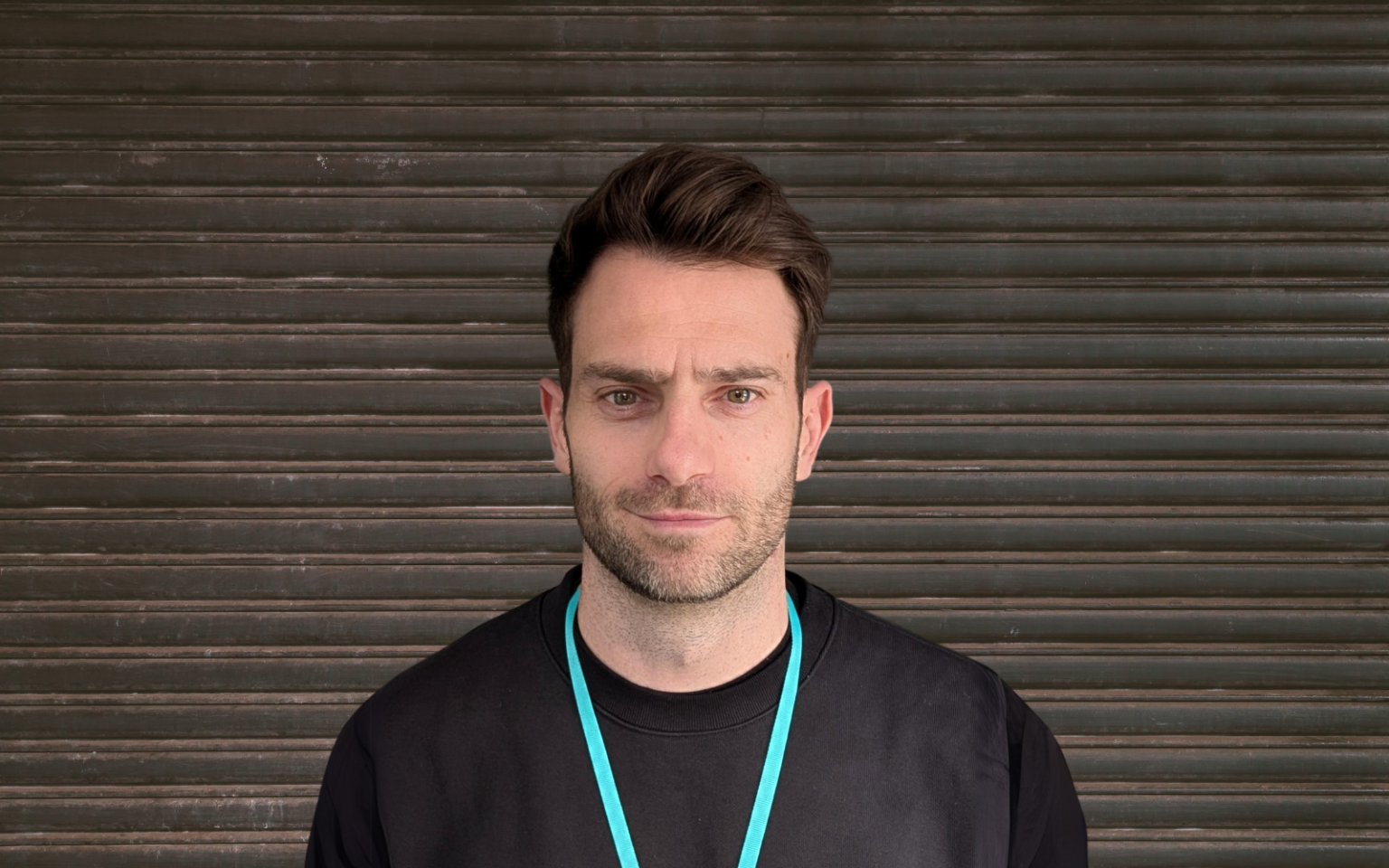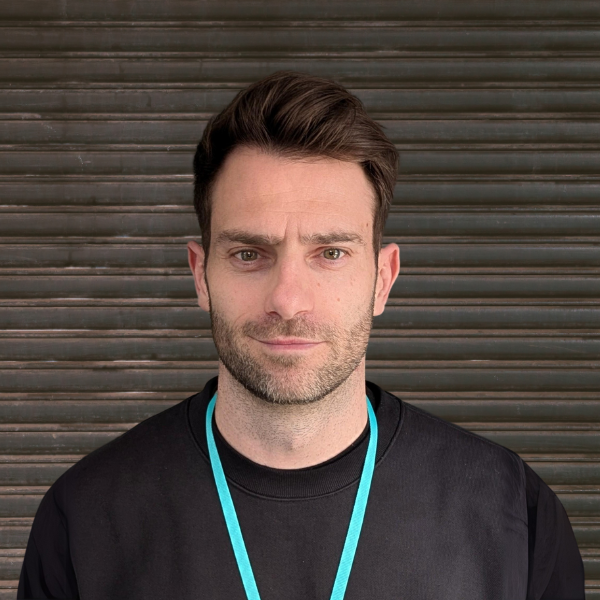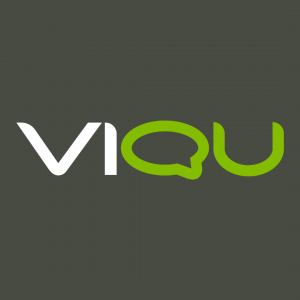The Wider Impact Of AI In Talent Acquisition Teams

I recently attended an industry event where someone compared artificial intelligence to an enthusiastic intern. They explained how you can give an intern a piece of work with the expectation that they will do the grunt work, but that you will have to look over it to tweak and edit it once they are done. And I think that is a good comparison to how most people are incorporating AI into their lives – both at work and home.
AI is not a silver bullet for every task and project. It needs to be used with purpose and clear intent, and that is certainly the case with AI in talent acquisition too. However, there are many exciting and dynamic aspects to AI that I think are, on the whole, changing the talent acquisition and recruitment industry for the better.
How are talent acquisition teams currently utilising AI?
Firstly, I think it’s important to establish what I’m talking about when I refer to AI in this article. When most people think about AI, they tend to be imagining Generative AI – which encompasses tools like ChatGPT. But it’s actually Machine Learning where most organisations are at in terms of the implementation of AI in talent acquisition processes, if AI is an area they’ve started to explore at all.
CV assessment tools
There are many machine learning CV assessment tools now available in the market that most talent acquisition teams use to assess CVs. Typically, the tools work by evaluating a role profile for keywords, identifying the CVs that align with those core words, and then ranking them accordingly. Using such tools is now fairly common in the talent acquisition industry as they essentially do the job that we used to do, but with the added bonus of such tools producing a ranking or score. This saves us time and creates efficiencies.
Chatbots
From a candidate perspective, sometimes applying for a role can feel like throwing a CV into a black hole – and that’s where chatbots are now bridging the gap for some companies.
Chatbots have been around for a while and although they’re not that new a concept in talent acquisition, they are getting more intelligent and I’m seeing an increasing number of talent teams choosing to include such tools in their screening processes.
Most talent teams do not have the manpower to call every single person as soon as they apply to ask them basic details and for consent to hold their details. So chatbots can make the frontend element of the application process very snappy and short.
However, the utilisation and implementation of such front-facing tools historically can be incredibly time intensive. In essence, the talent team has to build an entire workflow – if they answer ‘YES’, ask the candidate ‘XYZ’. Generative AI does seem to mean that these kinds of tools are slowly improving, so the hope is that eventually they will be able to analyse certain parts of an existing talent acquisition system to create a workflow for the talent team to then just check and tweak.
Is AI in talent acquisition causing challenges?
Just as talent acquisition teams are beginning to see the benefits of some AI tools, so are candidates… and this is causing issues.
Candidate behaviour is changing and fuelling problems
We’re starting to see a trend where candidates more often than not have got fantastic CVs, but when we get to interview the individual in-person, there’s a higher chance of a big separation between the reality of the person’s experience and what their CV stated. And that’s because they’re using tools like ChatGPT.
When talent acquisition teams feed these AI enhanced CVs into their machine learning CV assessment tool, it’s obviously going to score the individual highly because of the way the tool looks at the role profile and CV to calculate the match and synchronicities. However, we’re observing time and time again that we’re getting this dichotomy between the candidate and the candidate’s CV.
These tools have the ability to give candidates very specific cover letters and CVs which align with a particular job description. In a way I want to applaud such candidates for tailoring their CVs to the role. That’s something talent acquisition and recruitment professionals have been shouting about for decades. But as the tools candidates are using are getting smarter, this increases the time talent teams are wasting. TA teams and businesses will need to get smarter about how they assess skills and where the assessment starts within the process.
Will AI solve DEI challenges?
When AI really started to generate a lot of attention, I think it was an easy leap for talent acquisition professionals to make to conclude that AI would help us remove bias from the hiring process altogether.
Like most things, I don’t believe it will be a silver bullet and whilst in theory, the tools are objective, that’s sometimes not the case. In most instances they mirror what the users puts into it. So, in the long term, AI certainly has the potential to lessen unconscious bias, but at the moment, the output is created using existing content and therefore is inherently bias.
It’s not a silver bullet but…
Naturally, if there are 300 CV applications for a role, the talent team member will only look through applications until they have the number of qualified applicants they need to move onto the next stage. To be frank, this isn’t fair on qualified candidates who were just at the bottom of the pile, but the reality is that time is precious, and a talent team member isn’t going to continue to look through applications if there’s no need. So, what I do hope is that AI will slowly eradicate some of the unfairness from stages of the process like this, creating a fair opportunity for every applicant in the pool.
AI certainly should be part of the DEI conversation, but the focus should be on implementing such tools in true and transparent ways as they develop.
Will talent acquisition teams be wiped out by AI?
Whenever there is any type of breakthrough in technology, the first rumour is that recruiters and talent acquisition professionals won’t last the year – I’m sure it’s the same in other industries too! And whilst I think that it will remove the need for such high headcounts in certain areas, the skill of talent teams will simply shift as AI in talent acquisition becomes more prominent.
Researcher and resourcer roles will still be important
I wholeheartedly agree and hope that AI will drive change and force TA teams to truly step out from hiding behind basic administration and start doing the searching and true candidate engagement and management aspect of the job like they should be. But when I hear noise around AI removing the need for junior talent acquisition roles such as resources or researchers, I disagree entirely.
AI tools, for now at least, are not going to be able to find the passive candidates who might not be particularly active on LinkedIn or who have lack lustre LinkedIn profiles. AI can’t read between the lines to deduce who could be the right person for the job with the right training and guidance.
Using time more effectively
Finding and attracting the very best talent is always going to be the biggest challenge. As the workforce develops, talent teams need to take a multifaceted approach, including using AI in talent acquisition processes.
I hope that we can use AI to enable us to spend more time in other key areas. For example, if a tool can do 75% of the legwork to create a job advert, then the talent team member goes in and spends 10 minutes editing and adding nuances, that’s potentially 30 minutes the individual could save and use elsewhere.
The hope is that AI will enable talent acquisition teams to become more personalised with their approaches again. By having more time at their disposal, talent teams will be able to create a more bespoke and tailored interview process.
Yes, some organisations won’t use the extra time AI facilitates as a time efficiency; they’ll just look to save money. But for other organisations they’ll see AI as an opportunity for exciting growth and change.
How will AI impact the candidate experience?
The market is very candidate-heavy at the moment. We’re in a world where an applicant might not necessarily be going into an office regularly to experience company culture. Therefore, it’s the job of the talent acquisition team to show off their organisation and differentiate it from others.
By having more time available, thanks to AI tools, talent acquisition professionals will be able to deliver a really personal experience, which I think is something most have struggled to do over the last 5 years or so because of the volume of candidates outstretching capacity. AI in talent acquisition will give us the opportunity to get back to what we actually do best!
No one-size-fits-all approach
With entry-level roles that have high turnover (perhaps administrative workers or warehouse operatives), I think we will see more and more of the hiring process become automated. I can feasibly see a world where such workers have one or even no human contact before they are engaged in work.
Whereas I know technical professionals or those in mid-executive/director level roles are not going to be thrilled to receive a call from a virtual assistant or a Whatsapp message 45 seconds after applying for a role. That’s not the experience they expect. They want to interact with individuals who will help shape their understanding of the role and company, and whether it’s the right fit for them… and I can’t see that changing anytime soon!
Some organisations will roll out certain AI tools across their entire workforce. They won’t fail, but they’ll receive very mixed feedback. There will be a sweet spot somewhere in the middle. I personally think it’s about building and using tools differently across the whole spectrum and tailoring accordingly.
I previously worked with a company where we tried a traditional kind of questioning with all vacancies, asking the same question in 15 different ways to create a picture of the individual. When we compared the data after one year, there was a huge drop off in candidates, even within the graduate roles. So, we moved to a more gamified assessment which had elements of machine learning involved to analyse how someone interacted with the game. We saw our applicant continuation rates go through the roof because all of a sudden, they felt the test stage of the process was engaging to them and more personalised.
What should candidates expect moving forward?
At a recent conference I attended, there was a lot of discussion around there being a huge difference between the numbers of candidates getting through to the initial interview stage vs successful onboardings. We all agreed that this spiralling trend is because of candidates using tools to enhance their CVs.
Due to AI enhanced CVs being written in a specific way that lends to the role that’s being recruited for, talent acquisition teams will need to find alternative ways to assess individual skills. The way to do that for most will be to use testing. So, I expect there will be a lot more testing coming into the initial stages of hiring processes, and AI will play a role in facilitating that.
A mutuality of effort
From the perspective of the candidate, there has to be a mutuality of effort no matter what approach a talent acquisition team takes. For example, if a candidate applies online, I think it’s perfectly acceptable to send them a generic automated email, because the levels of commitment at that stage are very similar. Likewise, if a candidate completes a test, it’s perfectly acceptable for them to expect to receive their results, whether they go through to the next stage of the process or not.
I do think AI has the potential to make some talent team members complacent in their approach, so I think organisations and their talent teams will have to consider their use and implementation of certain AI tools very carefully in order to not negatively impact brand and employer reputation.
Looking to the future
We don’t know what’s going to happen in terms of the capabilities of AI, but I can imagine that more transactional elements of the hiring process (booking interviews, sending initial tests etc) will be made far simpler for us by AI and machine learning tools in the immediate future.
AI in talent acquisition should be all about automating the standard processes to enable talent acquisition teams that have historically been stretched in their capabilities, to spend a lot of time doing proactive searching, candidate engagement and talent pooling. Some talent acquisition teams are still very reactive and do not focus on strategic workforce planning. I think AI will give us the efficiencies to enable us to start moving along the spectrum into that truly strategic channel acquisition space.

Written by Simon Needle
Simon is a passionate and results-oriented talent professional with over 15 years of experience delivering transformative solutions in resourcing, attraction, retention, and strategic workforce management.
Simon’s expertise lies in creating innovative recruitment processes, overhauling employer branding, and championing equity, diversity, and inclusion in hiring. Recognised for driving award-winning initiatives, he has a proven ability to design and implement strategies that achieve measurable results.
LinkedInSimilar articles you might like...

The Impact Of Employer National Insurance Increases On The IT Sector: A Pragmatic Analysis
The Employer National Insurance increases have had far-reaching effects on the sector, with many businesses facing budget constraints as a direct result.

Why Are Data Scientists In Demand?
We have seen a significant increase in demand for data scientists, with many businesses keen to utilise data-driven business-making within their business strategy plans to fully leverage the benefits of unlimited cloud storage.
Latest jobs
Vulnerability Analyst
 Kensington, United Kingdom
Kensington, United Kingdom
 £400 - 500 per day + Outside IR35
£400 - 500 per day + Outside IR35
Vulnerability Analyst – Tenable SME – Outside IR35 – 6 Months – Hybrid - Central LondonMy client is looking for a Vulnerability Analyst with a deep understanding of Threat management. A leading organisation is urgently...
Tech Sales Consultant
 Birmingham, United Kingdom
Birmingham, United Kingdom
 £30k - 40k per year + uncapped commission
£30k - 40k per year + uncapped commission
Ready to Sell Something More Impactful Than Tech Solutions?Step into a role where you don’t just hit targets – you make a difference.You’ve mastered the art of tech sales – whether that’s VAR, MSP, SaaS,...
Energy Project Manager
 Stone, United Kingdom
Stone, United Kingdom
 Competitive Salary
Competitive Salary
Energy Project Manager | Power Transmission SystemsStone, Staffordshire | Permanent | Competitive Salary VIQU has partnered with a business on the cutting edge of operational technology and digital transformation!We're looking for a dynamic Engineering Project Manager...
Lead SRE
 Leeds, United Kingdom
Leeds, United Kingdom
 £75k - 80k per year
£75k - 80k per year
Led SRE Hybrid/ Remote – Once a month requirement in Leeds. Up to £80,000 per annum plus car allowance plus bonus. VIQU have partnered with a leading company within the supply chain industry who are seeking...
Rollout Engineer
 Nottingham, United Kingdom
Nottingham, United Kingdom
 £180 - 200 per day + Inside IR35
£180 - 200 per day + Inside IR35
Rollout Engineer – Short Term Contract – NottinghamVIQU have partnered with a Nottingham based organisation to recruit a Rollout Engineer for a short-term contract supporting a key iPhone deployment project. The role:The successful Rollout Engineer...



